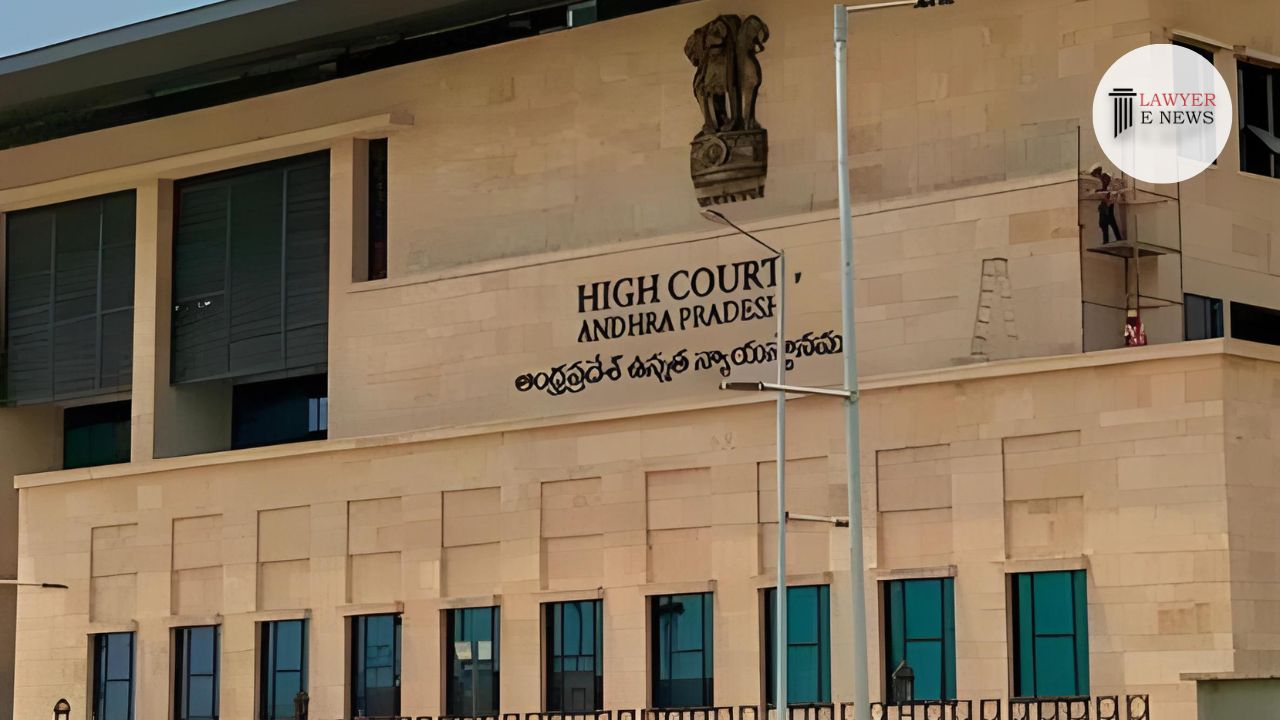-
by sayum
14 February 2026 2:22 PM



In a significant judgment Andhra Pradesh High Court allowed the criminal appeal of four individuals convicted under Section 302 of the Indian Penal Code for the alleged murder of Ganta Parvathi. The bench comprising Justice K. Suresh Reddy and Justice K. Sreenivasa Reddy set aside the life sentences imposed on the accused by the VII Additional District and Sessions Judge, West Godavari at Eluru, citing contradictions in the dying declarations and a lack of corroborative evidence.
The appellants, accused Nos. 1 to 4, were alleged to have conspired and executed the murder of Ganta Parvathi by setting her on fire on January 3, 2013, at Chataparru village, following a property dispute. The deceased succumbed to her burn injuries on January 6, 2013. The prosecution’s case rested heavily on the dying declarations of the victim, statements of eyewitnesses, and circumstantial evidence.
The trial court convicted the accused based on the deceased’s statements and sentenced them to life imprisonment.
The High Court meticulously examined the evidence and observed significant inconsistencies in the two dying declarations recorded by the deceased. Justice K. Sreenivasa Reddy noted, “There are glaring contradictions in the specific overt acts attributed to the accused in the two dying declarations. In one instance, the deceased claimed that accused Nos. 1 and 3 poured kerosene while accused Nos. 2 and 4 lit the fire. In another version, the deceased alleged all four accused collectively set her ablaze.”
The court further emphasized that dying declarations, while admissible as substantive evidence, must be consistent and credible. “In cases involving multiple dying declarations, the court must be convinced of the reliability and truthfulness of the statements, especially when there is no corroborative evidence,” the bench stated.
The court found that the prosecution failed to substantiate its claims with sufficient corroborative evidence. Key witnesses listed in the charge sheet were not examined, and two eyewitnesses turned hostile during the trial. The court highlighted the absence of independent witnesses from the neighborhood who could have supported the prosecution’s case.
Referencing the Supreme Court’s judgment in Sampat Babso Kale v. State of Maharashtra, the bench reiterated, “The non-examination of material witnesses and the reliance solely on inconsistent dying declarations do not meet the standard of proof required for a conviction in a criminal case.”
The High Court acquitted all four accused, observing that the prosecution had failed to prove its case beyond a reasonable doubt. It stated, “Suspicion, however strong, cannot substitute legal proof. The discrepancies in the dying declarations, coupled with the lack of corroborative evidence, render the prosecution’s case unreliable.”
The appellants who had already been released on bail or remission were directed to complete the necessary legal formalities for the conclusion of the case.
This judgment underscores the judiciary's cautious approach in cases reliant on dying declarations and highlights the necessity for corroborative evidence in criminal trials. By emphasizing the importance of consistency and reliability in evidence, the court reaffirmed the principles of fair trial and the presumption of innocence.
Date of Judgment: November 28, 2024
